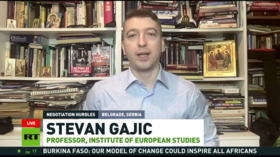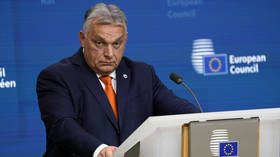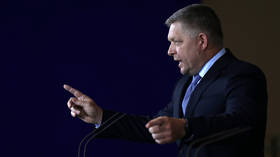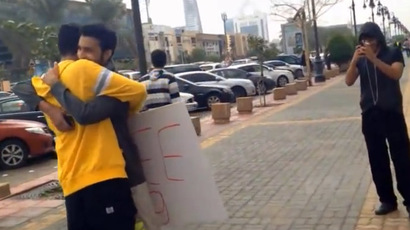On the lash: Saudi diplomats escape drink driving charges in UK

Saudi diplomats who have been caught drink-driving in the UK have avoided any charges on the grounds of diplomatic immunity in spite of the severe punishments imposed in their home country, where they could face public lashings or imprisonment.
Scotland Yard's diplomatic protection group had flagged up 14 “serious and significant” offenses last year by people with diplomatic immunity, according to the statement by Mark Simmonds, a Foreign Office (FCO) minister.
Simmonds revealed all offenses allegedly committed by diplomats to Parliament on Tuesday.
Six of the claims made were for drink driving. Other offenders were nationals from Belarus, Macedonia and Zambia.
The Saudi diplomats who avoided the charges were not named. However, it is understood that they will receive punishments at home from the Saudi royal family’s enforcers.
In Saudi Arabia Islamic law is enforced and alcohol is illegal. The punishment just for being caught drinking can be a prison sentence, a hefty fine, or floggings in public.
A Kuwaiti diplomat also stood accused of drink driving. Alcohol is strictly banned in Kuwait as well.
Also on the list was a Pakistani official who stood accused of domestic rape and another accused of child abduction, and a diplomat from Zambia who had been connected with a case of sexual assault.
In 2002, a British businessman in Saudi Arabia was sentenced to 800 lashes, imprisonment for eight years and fined $685,000 for managing a place which sold alcohol. Gary O'Nions, 57, only served a quarter of his sentence in the end, and was spared the flogging and the fine.
Meanwhile, Saudi Prince Saud bin Abdulaziz bin Nasir al-Saud was freed after three years despite having killed his manservant in a sexually-motivated attack at a London hotel.
Simmonds noted that the Foreign Office does seek to have diplomatic immunity waived in such circumstances and he stated that the FCO denounces the serious offenses – those which would receive a prison sentence of longer than 12 months.
The FCO made the request for immunity to be waived in five of the most serious cases, including the rape and child abduction; Pakistan’s government partly lifted immunity in one case so that the individual could be interviewed by police. However, Islamabad is under no obligation to comply with the requests to lift immunity.
“Some 21,500 people are entitled to diplomatic immunity in the United Kingdom and the majority of diplomats abide by UK law,” Simmonds wrote in the statement to MPs.
The Vienna Convention on Diplomatic Relations stipulates that those benefitting from immunity are expected to obey the law.
Allan Hogarth, Amnesty UK’s head of policy and government affairs, told the Independent: “Diplomatic immunity must not mean impunity. Serious abuses must be investigated and justice pursued.”














